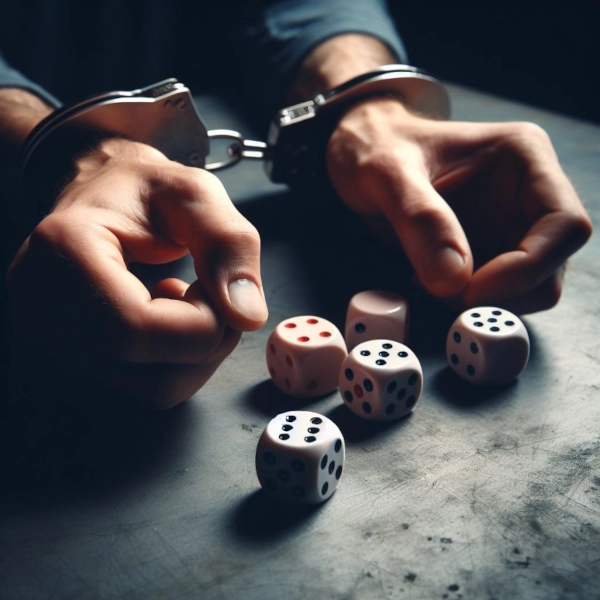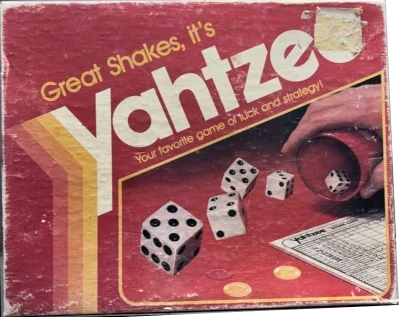Board Game Copyright Laws
Yahtzee’s globe-spanning popularity makes the game a cash cow for its corporate owner, Hasbro Inc., but also makes it a target for third-party exploitation. Modern intellectual property laws, such as copyright and trademark protection, are vital tools to safeguard creative works of art. We explore the fine line that companies must walk between protecting their most popular brands from piracy and unauthorized derivatives while keeping their fanbase happy.
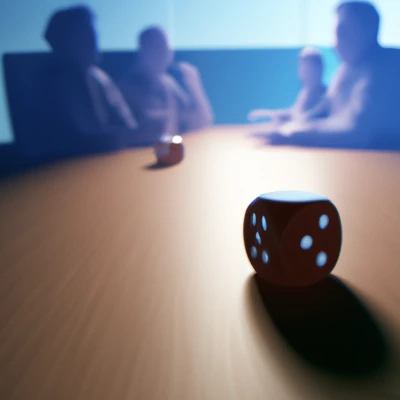
Board Game Trademark
Edwin S. Lowe is credited with inventing modern Yahtzee, but the dice game has a long complicated history. When viewed through the prism of Yahtzee’s ancient origins coupled with the legal dealings of modern corporations, the true nature of the world’s most popular dice game remains murky. Yahtzee sits in a precarious position where modern intellectual property rights and thousands of years of common law dice-throwing collide.
Early forms of Yahtzee sit firmly in the historical record, including one played by a Canadian couple who sold the rights to Lowe in the 1950’s. Other well-known games are considered regional variations of Yahtzee and are still enjoyed today. For example, Yatzie, Generala, poker dice, Kniffel, and Jacy-Tacy often predate the modern version of Yahtzee as introduced by Lowe. While they typically feature slightly different rules or scoring combinations, the modern Yahtzee enthusiast would be sure to recognize their common lineage.
All of these Yahtzee-adjacent games have been shaped by dice-rollers over millennia. The Roman dice game Tali is one of Yahtzee’s most ancient forerunners, originally played with knucklebone dice acquired from animal sacrifices. Prior to the age of global capitalism this myriad of related dice games was able to coexist peacefully, sustained by communal tradition and in private homes. Things began to change, however, as the modern concepts of private property and ownership evolved under societies beholden to the market economy.
Hasbro, the game’s current custodian, certainly has a vested interest in securely maintaining its vast catalog of popular toys and games. The modern legal system, through copyright and trademark laws, provides the tools to enforce this protection. But throughout history, great works of art have built upon their predecessors. Depending on who you ask, this process can be a benign act of inspiration all the way through to downright plagiarism. The biblical story of the Flood borrowed elements from the Epic of Gilgamesh. West Side Story lifted themes from Romeo and Juliet. And today, artificial intelligence like ChatGPT can regurgitate all of humankind’s digitized information without so much as a citation.
Like other human masterpieces, Yahtzee stood on the shoulders of giants and the world has reaped the benefits with a plethora of enjoyable dice games. Hasbro is now the sole entity able to legally produce and profit from the game, but what of the prior generations of labor and creativity that made Yahtzee what is it today? If there is really nothing new under the sun, then dice enthusiasts must ask themselves an existential question. Who owns Yahtzee?
Intellectual Property
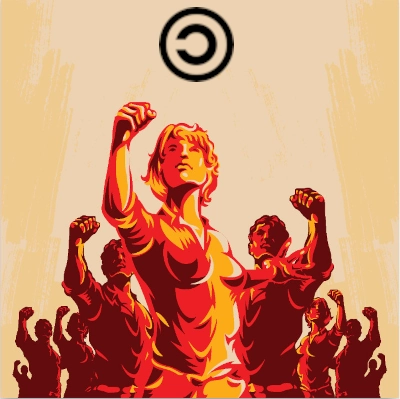
The French philosopher Pierre-Joseph Proudhon famously stated that “property is theft.” He felt that the concentration of private property in the hands of a bourgeois elite would deprive the rest of society – including the laborers who created the property in the first place – of its liberty, equality, and security. The argument was a critique of the unbridled capitalism present in 19th century Europe, but his ideas still resonate today.
Since Proudhon’s time, legal theory has advanced to provide ever stronger protections for private property. Indeed, it may be argued that the primary goal of government itself is to protect the private property of individuals and corporations. But Yahtzee is more than just five dice that you can hold in your hand. It represents a broader conceptual construct – a set of rules, a pattern of play, mechanics that constitute the game. And just like with physical property, laws exist to defend these more ethereal property rights.
Intellectual property (IP) refers to intangible assets, such as ideas, creative works, and inventions that are protected by law, giving the owner exclusive rights to use and profit from them. IP can take the form of patents, trademarks, copyrights, and trade secrets, among others. Together, private property, ownership, and IP are key concepts in the legal and economic framework that governs the ownership and control of assets and ideas. The essence of modern Yahtzee is protected by this bubble of IP law, at once both securing the game’s integrity while restricting its free use.
Board Games & IP
While the broader concept of intellectual property touches on grand ideas of ownership and creation, when it comes to the tangible world of board games, a specific set of legal tools comes into play. These instruments—primarily copyright and trademark, with patents playing a more specialized role—form the bedrock of how game designers and publishers protect their creative and commercial investments. Understanding how these apply generally to the board game landscape is crucial before we zoom in on the particular case of a giant like Yahtzee. So how can you protect a board game with copyrights, patents, and trademarks?
Copyright: Safeguarding Creative Expression, Not Core Ideas
For board games, copyright is a double-edged sword, offering robust protection for some elements while leaving others entirely open. Copyright law is designed to protect the original expression of an idea, not the idea itself. In the context of a board game, this means:
- What's Typically Copyrightable: The artistic elements are key here. This includes the unique artwork on the game board, the illustrations on cards, the design of the box, the specific wording and arrangement of the rulebook, and any original sculptural work in game pieces or miniatures. If the overall "look and feel" of the game's components, taken together, is original, that too can fall under copyright.
- What's Generally Not Copyrightable: This is where it gets interesting for game development. Crucially, the core game mechanics—the systems, procedures, methods of play, or underlying algorithms that make the game function—are not protected by copyright. The idea for a game, its theme in an abstract sense (e.g., "a space trading game"), or common game elements like standard dice or generic pawns are also outside copyright's grasp. This fundamental distinction, often traced back to legal principles like the idea-expression dichotomy (famously illustrated in cases like the U.S. Supreme Court's Baker v. Selden regarding bookkeeping forms), is what allows the board game hobby to evolve. Designers can freely iterate on and be inspired by existing mechanics, provided their expression of those mechanics is original.
This balance ensures that while a specific game's aesthetic and textual presentation is protected, the foundational language of game mechanics remains a shared resource for innovation.
Trademark: Defining Your Game's Identity
If copyright protects the "look" and "words," trademark law protects the "brand." For board games, trademarks are vital for establishing a distinct identity in a crowded marketplace. Key aspects include:
- What Trademarks Cover: The most obvious is the name of the game itself—think of iconic names like "Monopoly®", "Catan®", or indeed, "Yahtzee®". Logos associated with the game or the publishing company are also primary candidates for trademark protection. Beyond these, distinctive character names that have become synonymous with a game, or even unique packaging (known as "trade dress") that consumers recognize as indicating a specific game, can be protected.
- The Purpose of Trademarks: Trademarks serve to identify the source of the game, distinguishing it from competitors. They help prevent consumer confusion – ensuring that when you buy a game, you know who made it and what to expect. Ultimately, trademarks safeguard the reputation and goodwill that a publisher or designer builds around their creation.
Patents: For Truly Novel Game Inventions (A Brief Mention)
While less common in the board game sphere than copyright or trademark, patents offer another layer of IP protection for specific types of innovation:
- Utility Patents: These can, in some instances, protect new and non-obvious game mechanics, unique processes of play, or a novel physical game apparatus. For example, a truly innovative dice-rolling mechanism or a unique interactive board component might be patentable. However, the bar for novelty and non-obviousness is high, making utility patents for game mechanics relatively rare and often complex to secure. Wizards of the Coast famously secured patents for some mechanics in Magic: The Gathering, such as "tapping" cards.
- Design Patents: These don't protect how something works, but how it looks. A design patent could cover the unique ornamental appearance of a game piece or a distinctively shaped game board, provided it’s not purely functional.
Patents are generally a more significant investment and are typically pursued for groundbreaking or commercially significant innovations within a game's design or physical construction.
The Interplay: Theme, Mechanics, and Original Expression
It's this framework that allows a vibrant ecosystem of games. Many games might share core mechanics – worker placement, deck-building, area control – but distinguish themselves through unique themes, art, narratives, and specific rule implementations. The theme (e.g., medieval farming, intergalactic warfare, zombie survival) combined with original artwork, story text, and component design provides the copyrightable expression, even if the foundational mechanics are familiar. This allows designers to stand on the shoulders of giants, mechanically speaking, while still creating something fresh and protectable.
Why This Framework Matters
Understanding these different forms of intellectual property is not just an academic exercise. For game designers and publishers, it's essential for protecting their creations, avoiding infringement on the rights of others, and navigating the commercial realities of the industry. For players and enthusiasts, it sheds light on why some games feel familiar yet look entirely different, and how creativity continues to flourish within established legal boundaries. This general IP landscape sets the stage for the more specific ways these laws have shaped, and continue to shape, the story of individual games like Yahtzee.
Yahtzee Copyright
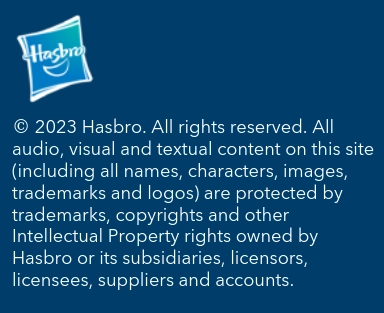
Is Yahtzee copyrighted? While the specific mechanics of a game are generally not copyrightable, the unique elements of Yahtzee's presentation, such as its specific rules text, artwork, and packaging, may be protected by copyright. However, the core gameplay itself falls outside the scope of copyright.
Copyright is a type of intellectual property that protects original works of authorship, whether they are books, plays, computer programs, board games, or any other tangible form of expression. In the world of gaming, copyright law protects a game’s name and branding from unauthorized use. There is a Yahtzee copyright, for example, on the game’s official scorecard. But the game mechanics, which can include written rules, artwork and other elements known as the ‘theme’ of the game, remain in the public domain.
Under a strict reading of the law, a person could therefore create a game with identical mechanics to Yahtzee, but under a different name. Yahtzee enjoys IP legal protection, but its gameplay mechanics are not protected by copyright law. Further leeway is available to such a creator under the concept of ‘fair use.’ This is a legal doctrine within copyright law that allows for the limited use of copyrighted material without permission from the owner. It is designed to promote creativity, innovation, and free expression by permitting certain uses of copyrighted material that are deemed to be fair and not infringing on the copyright holder's rights.
Under American law, there is a set of factors that is used to determine whether use of a work falls within the limits of fair use:
- The purpose and character of the use, including whether such use is of a commercial nature or is for nonprofit educational purposes
- The nature of the copyrighted work
- The amount and substantiality of the portion used in relation to the copyrighted work as a whole
- The effect of the use upon the potential market for or value of the copyrighted work
Fan clubs, websites, and user-created fanfiction that transform the original work such that it is ultimately used for commentary, teaching, criticism, or research would not be subject to copyright infringement. But if a project is used to turn a profit or its exposure threatens the original IP, then the fair use principle may not apply. The fan-created Star Trek movie Axanar, for example, ran into legal problems when CBS and Paramount Pictures filed a copyright lawsuit to protect its intellectual property. More often than not, legal action against a fan creation comes down to money. So long as the author does not make any money from their fanfiction, the IP holder will tend to turn the other cheek.
Yahtzee and board games in general aren’t fertile ground for fan-created movies or literature. And a non-commercial fan-created game that uses similar gameplay elements as Yahtzee under a different name would typically be safe from adverse legal action. But the reprinting or unauthorized distribution of copyrighted score cards, for example, could land someone in hot water if the recreation was not sufficiently transformative.
But help is available to fan-based creations. The Organization for Transformative Works is a nonprofit established by fans to serve the interests of fans by providing access to and preserving the history of fanworks and fan culture in its myriad forms. Its activities include an archive of fan fiction works and legal advocacy for fan content creators. Fortunately, no U.S. court has ever held that a not-for-profit, transformative fanwork infringed copyright. But because Yahtzee is protected by both copyright and trademark, there are other legal considerations.
Yahtzee Trademark
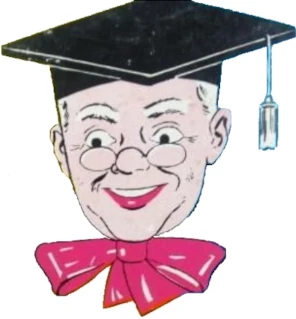
Is Yahtzee trademarked? Yes, the name 'Yahtzee' is a registered trademark. This means that Hasbro has exclusive rights to use the name in connection with their game and related products, preventing others from using confusingly similar names.
Trademark protection is filed to protect the sanctity of the name or title of a work. Hasbro has a Yahtzee trademark on the name of the game regardless of the font or typescript used to form the word. But it is also possible to receive a trademark for other creative elements. Monopoly, another of the company’s board games, for example, has safeguards around much of its artwork including the railroad icon, images for the “Jail,” “Go to Jail,” and “Free Parking” spaces, the Chance and Community Chest card designs, and the design of the game’s money.
An IP owner can also use a trademark to protect a board game property that has expanded into other media, such as film and television. Turning tabletop games into feature films may seem counterintuitive but Yahtzee has always been on the leading edge of multimedia expansion. For instance, it was one of the world’s earliest video games and continues to spread digitally in lockstep with technological advances in online entertainment. Unfortunately Yahtzee has not yet been green-lit for a feature film, but it may only be a matter of time.
Hasbro is no stranger to movie-making. It had a run of early successes in the 1980s such as My Little Pony: The Movie and the animated television series Jem. Trademark security is vital in a visual medium where characterization and story-telling are necessities. More recently, Hasbro has sought trademark protection for its G.I. Joe and Transformers movie properties.
Due to success of these movies the company’s multimedia arm, Hasbro Studios, developed plans for a Hasbro Cinematic Universe – a line of modern motion pictures based on their popular board games. But the poor reception of 2012’s Battleship soured plans for future expansion. Nevertheless, film projects based on Hungry Hungry Hippos, Risk, and Candy Land are rumored to be in the works. And the highly anticipated Dungeons & Dragons: Honor Among Thieves, may help to turn the tide.
Hasbro plans to maintain its capability to develop and produce animation, digital shorts, scripted TV and theatrical films related to core Hasbro IP – so a Yahtzee film remains a possibility. What such a movie would look like is an open question but the company will no doubt protect the property through a trademark. Unlike other popular tabletop games, Yahtzee has never featured any character, human or otherwise – with the sole exception of the 1956 “Yahtzee scholar” cartoon that appeared on early game boxes.
Potential misuse of a Yahtzee brand mascot, therefore, would appear to be a non-issue. But other Hasbro games do feature characters such as Monopoly’s Rich Uncle Pennybags and the various murder suspects in a game of Clue - all prime targets for trademark protection. If Yahtzee does eventually grace the silver screen, the Yahtzee scholar may indeed require the protective embrace of his very own board game trademark.
Copyright and trademark laws provide a high level of protection for any intellectual property. But this doesn’t mean that Yahtzee and its board game brethren are immune to legal disputes. In fact, exactly the opposite is true.
Enforcing IP Laws
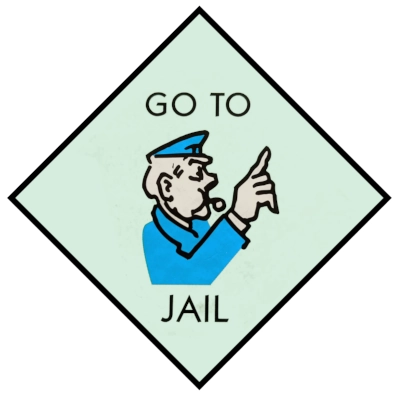
Like any multinational corporation, Hasbro’s legal department has to deal with a variety of challenges to protect its intellectual property. One such battle involved The Game of Life, another timeless classic in Hasbro’s stable of bestselling board games. Like Yahtzee, it has a rich historical legacy, having been created by game pioneer Milton Bradley himself. On its centenary in 1960, Life was redeveloped in the modern age of board games. Game designer Bill Markham was approached to update the game and it proved to be an instant success. Decades later in 2012 Markham’s descendants sought to reclaim rights to the game through U.S. copyright law. But the court ruled that the Markhams did not have the termination rights needed to reassert control over the copyright. Hasbro successfully defended their IP under the protections of the 1909 Copyright Act.
On another front in 2008, Hasbro sued the developers of a Facebook app called Scrabulous that let users play an online game that borrowed heavily from their board game IP Scrabble. Feeling the heat, the Indian brothers who created the app were forced to restrict gamers from the U.S. and Canada from accessing their game. But Hasbro’s victory was short-lived as the developers used copyright law to their advantage by sidestepping the multinational’s protections. A new version of the game featured a new name, Lexulous, and used a sufficiently different interface to crawl out from under the shadow of Hasbro’s copyright claim.
This wasn’t the only time Hasbro has been on the losing end of a legal dispute. In 2021 a European Union court found that Hasbro had misused its Monopoly trademark protections to gain an unfair advantage against competitors. The practice known as "evergreening" involves a business re-filing to register a trademark which is identical, or highly similar, to a preexisting registration owned by the same business. The corporation was deemed to have acted in bad faith by re-filing trademarks on the game to create an artificial shield against challenges to their existing marks.
Intellectual property protection, particularly for world famous brands, requires a corporation’s constant vigilance. With the surge in online apps and games, third-party creators seeking a quick buck may turn out cheap rip-offs of a well-known favorite. The Google Play app store alone features hundreds of clones to play Yahtzee online– none of which are licensed or authorized by Hasbro. Many of these try to skirt IP law by employing misspellings like “Yatzy” or “Yacht-Z”. But if gameplay is identical then it is extremely likely that consumers will confuse the apps for the genuine Hasbro game, resulting in trademark infringement.
According to intellectual property attorney Suzy Fulton, the title of such apps really matter when cases come before a court. “It is presented as a fact question for a jury, and both sides can make strong arguments. On the other hand, 5dice, Maxi Dice, or Simple Dice may be Yahtzee clones and may be liable for copyright infringement, but would not be liable for trademark infringement.” But updates to the interface or game mechanics can make all the difference. Fulton continues: “It gets trickier to answer the infringement question when the programmer begins to change certain aspects of the game, such as the rules, number of dice used, etc. At some point, that programmer will no longer infringe because of the originality of his/her work.”
Copyright or trademark infringement can occur even when a creator has the best of intentions. Caution must be exercised to ensure that a new product remains sufficiently different from IP protected works, or falls within their fair use. A well-formed sense of integrity is indispensable for both new creators and existing IP rights holders. But when you’re a multinational corporation doing billions of dollars of business every year, the very nature of the capitalist system often blurs the lines between integrity and the quest for profit.
Threading the Legal Needle
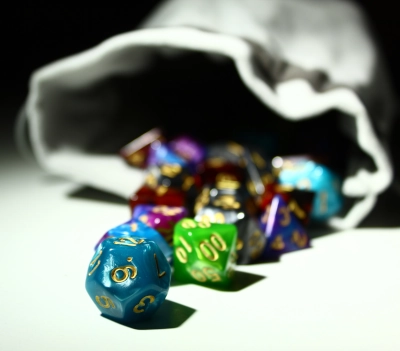
As a publicly traded company, Hasbro must always tend to its bottom-line. But when increased earnings are prioritized ahead of customer sanctification, no one wins. The company’s most recent and ongoing IP rights snafu has provoked a gamer uprising against the company’s perceived strong-armed approach to its brand protection.
In 2022, Hasbro made plans to boost revenue by changing its open game license (OGL) for the Dungeons & Dragons role-playing game (RPG). D&D is unique within Hasbro’s IP as it allows for a high degree of player customization and storytelling. Consequently, many other creative works have been spun off or directly influenced by the game over its 50-year history. The OGL provides a legal framework by which people have been able to build their own tabletop role-playing games alongside the Hasbro-owned brand. Introduced in 2000 by Hasbro subsidiary Wizards of the Coast, the OGL ushered in an RPG boom in the gaming industry.
The open game license was widely credited with fostering creativity and innovation and spawned dozens of D&D-compatible supplements. But like Yahtzee, RPGs have aspects that are copyrightable and aspects that are not, such as functional descriptions of game mechanics. Kit Walsh, a senior staff attorney at the Electronic Frontier Foundation has argued that Hasbro’s original OGL actually restricts players’ rights by including "elements that are not copyrightable in the first place." Agreeing to the OGL "almost certainly means you have fewer rights to use elements of Dungeons & Dragons than you would otherwise. For example, absent this agreement, you have a legal right to create a work using noncopyrightable elements of D&D or making fair use of copyrightable elements."
Regardless, fans weren’t happy with the proposed changes to the game’s OGL, viewing it as corporate overreach that would strip players of their creative control. Wall Street agreed, with Bank of America issuing a warning to Hasbro, stating that the company is destroying its brands’ value, effectively "killing its golden goose" by over-monetization. Over 70,000 D&D fans signed a petition protesting the licensing change but the damage may already be done. Hasbro’s play for short-term profit without sufficient thought to the long-term durability of its brand has resulted in a steep decline in customer loyalty and goodwill.
A Shared Future
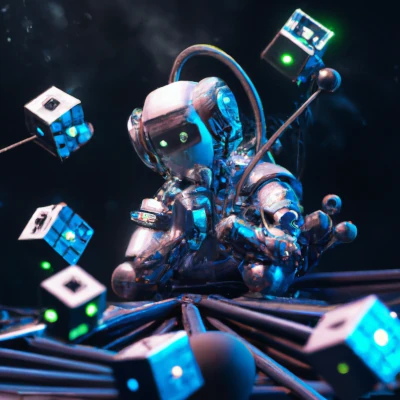
Intellectual property laws are designed to protect the value of creative works while allowing for their fair use from outside parties. But the process for all involved can be fraught with pitfalls. A publisher can, for example, create a game similar to Yahtzee as long as they do not copy any of the specific elements that are protected by Hasbro’s trademark, like the name "Yahtzee," the distinctive logo, and the packaging design. If one were to create such a game, it's a good idea to give it a unique name and distinguish it in other ways to avoid any confusion with Yahtzee and to avoid infringing on Hasbro’s copyright and trademark. And attention to the fair use principles will ensure a new creation is permissible.
Typically, companies will ignore fanfiction works and websites, derivative games and apps, and other use of their properties that brush up against fair use guidelines. The exception is when a fan-created work threatens to outperform the original or is seen to tarnish the brand’s public image or reputation. A capitalist corporate entity will not sit idly by while someone else cashes in on their intellectual property.
Some companies have a reputation for issuing cease and desist letters upon the slightest hint of infraction. Even if the complaints are unlikely to prevail in court, their legal action can squash the efforts of a much smaller, and less well-funded, creator. Prevention is often the best remedy. Early advice from a trademark lawyer and proactively registering a trademark or copyright before release of the product can ward off unwanted action.
Many fan websites or works of fiction are distributed freely and pose no threat to a corporation’s bottom line. Any profits earned under fair use are dwarfed by the millions of dollars that the original brands generate. The vast majority of fan creators are not sleazy IP pirates looking to get rich of off someone else’s work. Rather, fan sites and derivative works are made by people who cherish the properties and want to spread their love of the original material. In most cases, corporate owners are more than happy to sit back and let a healthy fan base evangelize their products. Fan creations, while sticking to fair use principles, are great free advertisement for the original IP.
So while Hasbro retains the legal rights to use Yahtzee – and the power to protect those rights - there is leeway for fan creators to share in the game’s glory. The CEO of Hasbro, Chris Cocks, has recently confirmed this approach: "Our best practice is to work collaboratively with our community, gather feedback, and build experiences that inspire players and creators alike."


